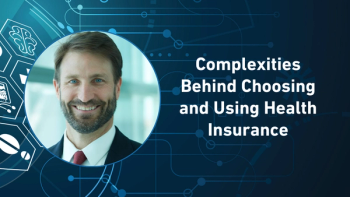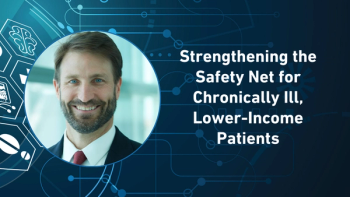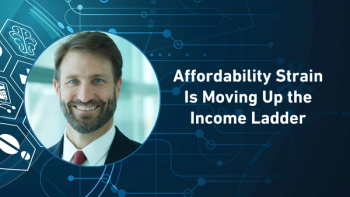
Trade & Channel Strategies 2023: Enabling Holistic Hub and Provider Services
Session discusses ways to integrate digital pharmacies and hubs.
Day 2 of the Trade & Channel Strategies Conference featured an impressive slate of sessions, including one on what it takes to “Enable Holistic Hub and Provider Services.” With no moderator per se but rather in a collaborative effort, Cheryl Allen, founding partner of Curatio Scientia; Paul Chen, senior director of trade and channel with Lexicon Pharmaceuticals; and Spencer Miller, director, market access, trade and payer with Bayer, dug into a plethora of different topics. These individuals were also featured in Pharma Commerce’s
This included a look at how to integrate digital pharmacies and hub; how to strengthen partnerships among manufacturers, hubs, and SPPS; and ways to provide third-party monitoring and oversight.
Using a digital pharmacy
On behalf of Lexicon Pharmaceuticals, Chen represents a general pharmaceutical (gen pharm) category in this scenario—when he was hired, the company was comparable to a startup, in the sense that they were launching a new product in the cardiovascular space, while dealing with heavy hitters in the manufacturing space, specifically what he predicted are three large manufacturers that have over 6000 reps combined.
“So my thought coming to the market from a trading channel perspective is, can I help support the field sales organization? As you all know, the biggest challenge is getting a doctor to change their prescribing habits,” Chen noted. “And once they write, the last thing they want to hear is couldn’t get my drug, it cost too much money. So, the way I look at it was all my competitors were in retail, so I had to be in retail. But could I devise a strategy, which is, where did these other partners fit into the model? So digital pharmacies, maybe a Pharmacy-Lite, and how do you bring their services to help with that patient journey and helping those physicians get product approved?”
However, he also saw the benefits of utilizing a digital pharmacy, referencing various ones including Truepill and BlinkRx. Lexicon elected to use the latter.
“What was nice is that I work with them on a consignment model for that first free dispense, so they enter the ecosystem coming through the prescription pad … It was almost like having a specialty pharmacy in a way but at the retail level,” Chen added. “And so, they’re incentivized by saying ‘hey can get those dispensers going through,’ because they know there’s a dispense fee or transaction fee for that. So when I looked at the data, the clearance rate on the prior authorizations [PAs] have been way higher using that digital pharmacy model.”
Prior authorizations and telemedicine
Miller raised a thought-provoking question to his fellow panelists: Is a PA a core service?
In short, from a specialty pharma perspective, Chen expressed that it would be. Allen noted that it depends on the therapeutic area, along with the pharmacies and/or services; they would define it for themselves.
What the Bayer exec also felt was fascinating is the role of telemedicine in the deployment of care in the United States, and how it fits with the digital pharmacy/digital hub.
“After doing my research, I think they're sort of opposite, or they can be together but they don't necessarily have to be,” Miller expressed regarding digital health and digital pharmacy. “… In terms of telemedicine, there's been a couple of interesting things. We had COVID obviously, we all lived through that, it was an experience that I think affected our lives. But telemedicine definitely had its day during that time. “Just looking from a macro perspective, visits to OB-GYN offices and oncology offices are down high single digits, they have not returned. We have a health care provider crisis in this country in terms of getting access to just basic care. So telemedicine is right. Right for the growth.
From a closed/exclusive model approach—one that Allen said provides a generally high degree of patient satisfaction—she envisions telemedicine being offered in situations where direct-to-consumer (DTC) is accessible.
Reference
Enable Holistic Hub and Provider Services. December 12, 2023. Trade & Channel Strategies, Philadelphia.
Newsletter
Stay ahead in the life sciences industry with Pharmaceutical Commerce, the latest news, trends, and strategies in drug distribution, commercialization, and market access.




